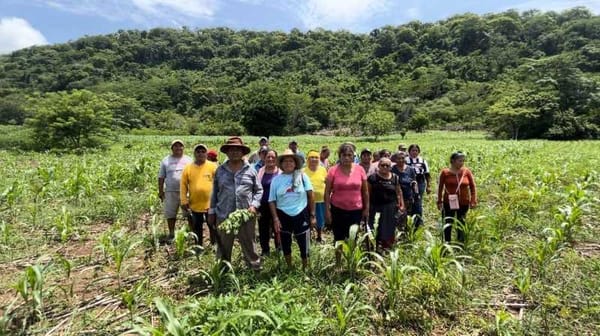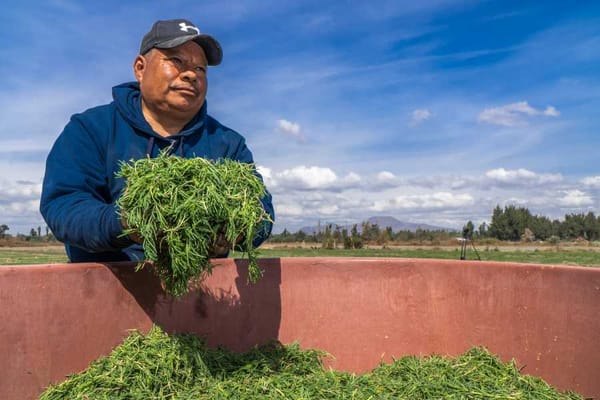What are the requirements to become a naturalized Mexican citizen?
Many foreigners arrive in Mexico year after year with different motivations: they may be personal, work-related, or other, but most of them seek to reside legally in the country and acquire certain rights and obligations.

Many are the foreigners that arrive in Mexico year after year with different motivations: they can be personal, labor, or of another nature, but most of them look for to reside in a legal way in the country, and to acquire certain rights and obligations.
Coming from the United States, Spain, Guatemala, Belize, Argentina, Brazil, Chile, France, Colombia, Paraguay, and a long etcetera, hundreds or thousands come to the Republic to work, undertake or build a family.
The Political Constitution of the United Mexican States recognizes in its Article 30 that Mexican nationality is obtained either by birth or naturalization. The second is updated when a foreign individual requests it from the Ministry of Foreign Affairs (SRE) if he or she complies with the requirements of Article 20, section I, paragraph d) of the Nationality Law and Article 14 of its Regulations:
To be of legal age and have civil rights
DNN-3 format filled by machine or by hand with black ink and legible handwriting
To verify the temporary or permanent resident card and justify having resided in Mexico for a period of 'x' years prior to the time of application:
For 5 years
To foreigners who prove a residence in the national territory
For 2 years
To foreigners who are direct descendants of a Mexican by birth
To foreigners with Mexican children by birth
To foreigners coming from a Latin American country or from the Iberian Peninsula
To foreigners who have provided services or accomplished relevant works in cultural, social, scientific, technical, artistic, sports or business matters that benefit the nation
To foreigners who marry a Mexican man or woman
For 1 year
To foreign minors who attest to being adopted children or descendants up to the second degree, subject to the parental authority of Mexicans
To foreign adults who were adopted children or descendants up to the second degree or were subject to Mexican parental authority (or being adopted)
What is the necessary documentation?
An original and two copies of the following must be submitted to the General Directorate of Legal Affairs of the SRE or to one of the foreign delegations
All the pages of the current migratory document, including the pastes, either with the status of temporary or permanent, issued by the Ministry of the Interior (Segob), through which the interested party proves his/her legal stay. And, in that way, the residence in the country for 1, 2, or 5 years previous to the date of the application, according to the chosen modality, which must have a minimum duration of six months after the presentation of the application.
All pages of the foreign passport, including the passports. If not, the identity and travel document as valid.
The certificate of no criminal record issued by the competent federal and local authorities, based on the place of residence.
The foreign birth certificate is legalized or apostilled and translated into Spanish if it is in another language. An applicant who is considered a refugee by the Segob may be excluded from this point.
Legalized documents -and translated into Spanish- of foreign origin that are presented within the procedures and formalities contemplated by the Nationality Law and its corresponding regulations.
A letter under protest indicating the number of departures and arrivals from and to the country in question during the last year, 2 or 5 years, as applicable. The above is for the computation of absences, mentioned in Article 21 of the Nationality Law. They must not exceed 180 days in 2 years.
Written where the other nationality is expressly waived, protesting compliance with Mexican laws and authorities.
Proof of payment of fees.
Two recent color photographs in passport size (4.5 x 3.5 centimeters) with white background, front view, without glasses, and head uncovered.
Marriage certificate or the insertion in the certificate of the marriage celebrated abroad, provided by the Civil Registry if applicable.
Documents issued by universities or public organizations that prove that services have been rendered or outstanding works in cultural, social, scientific, technical, artistic, sports, or business material that benefit the nation, if applicable.
In addition, authenticate that you speak Spanish, know about Mexico's history, and are incorporated into the national culture. Therefore, it is necessary to pass a knowledge test. For refugees, minors, and those over 60 years of age, it will be enough to prove that they are fluent in Spanish.
What are the steps?
Obtain proof of no criminal record at the federal (at the Decentralized Administrative Body for Prevention and Social Readaptation), local (Mexico City's Attorney General's Office) or state level for no longer than three months and pick it up at Avenida Coyoacán #1635, Colonia Del Valle Sur, Zip Code 03104, Alcaldía Benito Juárez, Mexico City.
Payment of fees. For the reception, study, and, if applicable, expedition of the letter, the amount is 5255 pesos.
Revision of documents in the delegation of the SRE of the CDMX or foreigners.
Passing the Mexican history and culture exam and, if applicable, the Spanish comprehension exam on the same day the documents are delivered. If you fail, you must wait 10 working days to present the application and test again. You can only try twice more; otherwise, you will have to wait a year counting from the day after the application of the most recent one.
Withdraw the letter from the Directorate General of Legal Affairs of the SRE.
How long does it take?
In theory, the Secretary of Foreign Affairs will request the opinion of the National Institute of Migration (INM) regarding the application for naturalization within 15 working days (3 weeks), and the latter must issue it within 45 working days (almost 2 months).
However, as in any bureaucratic procedure, this may take less or more time if the authorities demand more information from the applicant.




